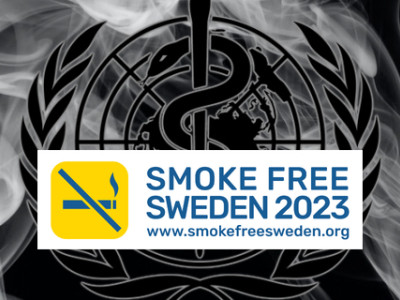New York
New York Governor Andrew Cuomo has announced a plan to raise the legal age for vape sales ((in line with tobacco) from 18 to 21-yrs old.
Cuomo said: “We have made great strides to stamp out teen smoking, but new products threaten to undo this progress to the detriment of millions of Americans. In New York, we refuse to stand idly by while unscrupulous businesses target our young people and put their very futures at risk.”
Smokefree Foundation’s Charles Gardner called Cuomo’s statement “pathetic”, and pointed out that he is ignoring the fact that flavours are instrumental in helping adult smokers to switch and reduce the harm they’re exposed to.
The Hill
New York isn’t operating in isolation; various states are implementing or planning to adopt legislation banning Under-21’s from tobacco products. Iowa, for example, has also introduced Senate File 66 to do the same thing – as well as banning vape products from vending machines and being given away as samples.
“A U.S. Food and Drug Administration study found that 86 percent of youths aged ‘15 to 17 years old obtained cigarettes by asking someone else,’ and 89 percent relied on these sources for e-cigarettes.”
“18-years-olds can be tried as an adult, forced to go to war and are held responsible for tens of thousands of dollars in student loan debt. It is unacceptable that states would require so much responsibility from these adults on one hand, while restricting their access to tobacco products.”
“Rather than limiting choices, lawmakers should use the funding from tobacco taxes and settlements on cessation and education programs.”
JAPAN
A combination of price hikes on tobacco and success of HNB technology has halved smoking rates since 1989. The smoking rate peaked in 1966, when almost half the population used tobacco products – including almost 84% of males.
Japan Tobacco has stated that it is now focussing on heat-not-burn products because they “smell less and are considered to have lower health risks.” A further boom in the market is expected, as restaurants will soon be allowed to have designated rooms for users of heat-not-burn products.
PMI
PMI has released a statement saying it is “committed to creating a smoke-free future - A future that does not include cigarettes.” Chief Executive Officer André Calantzopoulos wonders what ought to be of the utmost importance in the minds of those opposed to its involvement in the alternative nicotine markets: “What is more important: helping smokers or hating us?”
He writes: “I’m often asked why we do not stop selling cigarettes. Perhaps this is the wrong question. The right question might be: ‘When will people stop buying cigarettes?’”
“Our ambition is to convince all adult smokers who would otherwise continue smoking cigarettes to switch to scientifically substantiated smoke-free products, which are a much better alternative for them.”
Edibles
Lexaria BioScience’s subsidiary Lexaria Nicotine LLC has partnered up with a division of tobacco giant Altria to produce a range of nicotine-based edibles. Altria now owns a third stake in Juul Labs.
“We use a patented dehydration synthesis process to combine the nicotine with simple ingredients like sunflower oil in a unique way. It allows for the removal of the bitter taste often associated with nicotine without the need for artificial flavours that are often appealing to children,” said CEO Chris Bunka.
The appetisingly named Dehydratech is being plugged as “a real solution” for people who “enjoy having nicotine in their system.” Bunka added: “All we are trying to do is enable a nicotine delivery mechanism that stops killing people. I think that is a darn good start.”
Ealing Council
Ealing Council has cut its Quit Smoking service despite it achieving 47% quit rates and reducing the overall smoking rate to 15%. The move has been sanctioned in a bid to find the £1.3m required to balance the books due to on-going drops in funding from central government.
A spokesperson said: “The council has an overall budget gap of £57m. Since 2010, the council has seen its government grant reduced by £143m, a cut of 64 per cent, leaving us with only 36p of every pound we previously were given.”
Ealing Clinical Commissioning Group believes this will simply shift costs to GPs, with an increased demand for prescribed interventions.
Resources:
- “Cuomo Wants To Treat Vaping Like Tobacco” - https://filtermag.org/2019/01/18/cuomo-wants-to-treat-vaping-like-tobacco/
- https://thehill.com/opinion/healthcare/425678-states-should-reform-how-they-spend-tobacco-funds-not-restrict-access-to
- JTI Reduced Risk Products - https://www.jti.com/about-us/what-we-do/our-reduced-risk-products
Dave Cross
Journalist at POTVDave is a freelance writer; with articles on music, motorbikes, football, pop-science, vaping and tobacco harm reduction in Sounds, Melody Maker, UBG, AWoL, Bike, When Saturday Comes, Vape News Magazine, and syndicated across the Johnston Press group. He was published in an anthology of “Greatest Football Writing”, but still believes this was a mistake. Dave contributes sketches to comedy shows and used to co-host a radio sketch show. He’s worked with numerous vape companies to develop content for their websites.
Join the discussion
Harm Reduction For The Rich
The United Kingdom risks becoming a harm reduction country only for the wealthy, according to Michael Landl of the World Vapers’ Alliance
CAPHRA Highlights Tobacco Control Flaws
The Coalition of Asia Pacific Tobacco Harm Reduction Advocates highlights the flaws in tobacco control which has led to the rise of black market in Australia
A Missed Opportunity at COP10
The Smoke Free Sweden movement says that COP10 was a missed opportunity to save millions of lives
COP10: Promote Tobacco Harm Reduction
Experts with Smoke Free Sweden are emphasising the urgent need for a Tobacco Harm Reduction approach at COP10












